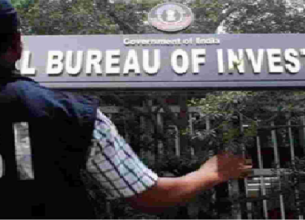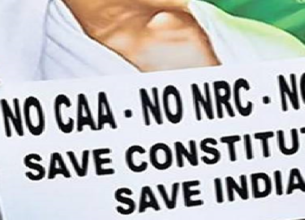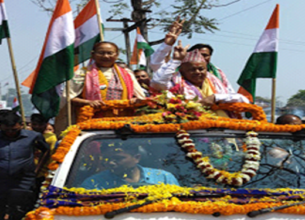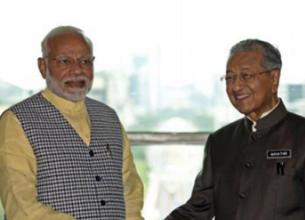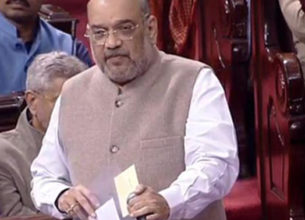ARTICLE 131 – SPECIAL POWERS OF SUPREME COURT
29, Jan 2020
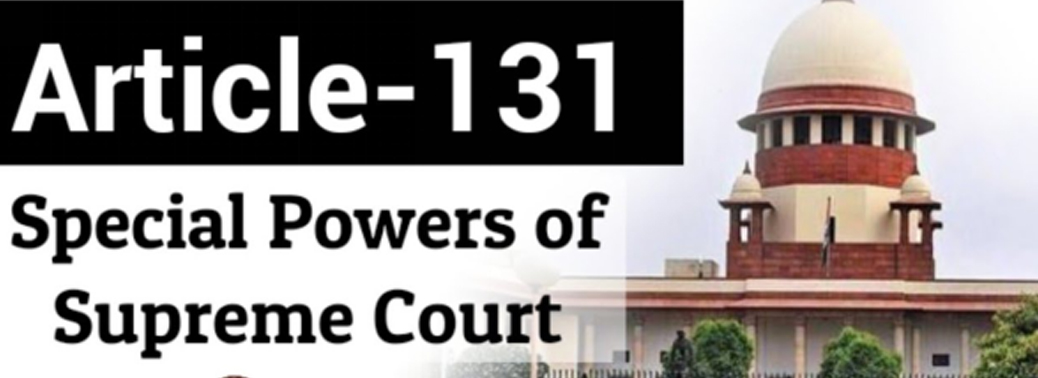
Prelims level : Rights Issues
Mains level : GS-II Functions and responsibilities of the Union and the States, Issues and Challenges Pertaining to the Federal Structure, Devolution of Powers and Finances up to local levels and Challenges Therein
Context:
- Recently, the LDF government in Kerala, became the first state government in the country, that moved the Supreme Court against the Citizenship Amendment Act (CAA). The Kerala government sought that the act be declared as violative of the Doctrine of Basic structure—principle of equality, freedom and secularism.
Citizenship Amendment Act (CAA), 2019:
- The CAA 2019 grants Indian citizenship to persecuted non-Muslim minorities viz. Hindus, Sikhs, Buddhists, Jains, Parsis and Christians who migrated to India from Afghanistan, Pakistan and Bangladesh on or before December 31, 2014.
Article-131: Original Jurisdiction
- The SC (as a federal court of India) possesses Original jurisdiction to decide the disputes arising between different units of the Indian Federation like:
- Centre and one or more states; or
- Centre & any state(s) on one side and one or more states on the other; or
- Two or more states.
The Applicability of the Article 131:
- The dispute must involve a question of law or fact on which the existence/extent of a legal right depends. Thus, the questions of political nature are excluded from it.
- Any suit brought before the Supreme Court by a private citizen against the Centre or a state cannot be entertained under this article.
- Also, the provisions mentioned in this Article are subject to other provisions of the Constitution. For example, in cases of water disputes between two or more states, the remedy to such conflicts is entertained under Article 262 of the Constitution and not under Article 131.
Part XI and the Seventh Schedule:
- Part XI (Articles 245-263) of the Indian Constitution consists of articles that describes the legislative, administrative, and financial relations between the Union and the States.
- Article 246:Defines the legislative subject matters on which the Parliament and the State Legislatures can make laws. These matters are enumerated in the 3 lists of Seventh Schedule.
- Union List:
- Parliament has exclusive powers to make laws on the subjects mentioned in the Union List.
- Parliament is also empowered to make laws for territories which presently do not form part of any state.
- State List:
- State Legislature (in normal circumstances) has exclusive powers to make laws on subjects enumerated in the State List.
- Concurrent List:
- Both Parliament & State Legislature can make laws on items described in the Concurrent List.
- However, in case of any conflict, the Central law prevails.
Exceptions:
- Under 5 circumstances, the Parliament is empowered to make laws on State List subjects –
- If a resolution is passed to that effect by the Rajya Sabha (Article 249),
- During National emergency,
- President’s Rule,
- If requested by two or more States,
- Under obligation to implement an International Treaty.
Articles 256 and 365:
- Article 256 of the Constitution states that the executive power of every State must ensure compliance with the laws made by the Parliament.
- Kerala has said in its suit that, under CAA it would be compelled to comply with its provisions because of Article 256.
- Kerala considers CAA to be arbitrary, unreasonable, irrational and violative of Fundamental Rights.
- If it does not follow the same, the repercussions could be seen in the form of Article 365.
- Article 365: In case of failure to comply with, or to give effect to, directions given by the Union, the President is empowered to make a decision thinking that a situation has arisen in which the government of the State cannot be carried on in accordance with the provisions of this Constitution. Hence, the President’s rule could be enacted.
Can Supreme Court test the validity of a law under Article 131?
- Legislative Competence:A law must be challenged in the Court if it is in excess of the legislative competence of the framing authority.
- Violation of Rights:The Court can check whether a particular law violates which kind of rights- whether Fundamental or Constitutional rights?
- Violation of the Constitution:The Court can test a law if it is ultra-vires the Constitution. In this regard, there are following Doctrines which have been evolved by the SC over a period of time:
- Doctrine of Basic Structure:The Doctrine of Basic Structure signifies the basic features of the Constitution, which cannot be changed/amended, as they form the foundation of the Constitution on which its core principles/existence stands.
- Doctrine of Pith & Substance:Pith means ‘true nature’ or ‘essence of something’ and Substance means ‘the most important or essential part of something’.
- Doctrine of Colorable Legislation:It comes into play when a Legislature does not possess the power to make laws upon a particular subject but it indirectly makes law on it.
Related Cases:
- West Bengal Government’s Case
- In 2017, the SC proclaimed that the State government cannot ask for any remedy related to Fundamental rights.
- The case was filed under Article 32 of the Constitution challenging the validity of the ‘Aadhaar Act’.
- The Court also held that, “Fundamental rights are available to individuals: citizens or non-citizens against the State (under Article 32 or Article 226) and not to the State entities.”
- Chhattisgarh Government’s Case
- Chhattisgarh government also recently filed a suit in SC (under Article 131) against the National Investigation Agency (NIA) Act, 2008.
- It claimed that ‘Police’ & ‘Public Order’ are the state subjects and States have the ultimate authority to make laws related to it.
- NIA Act, 2008 takes away the state’s power to investigate offences categorised as ‘scheduled offences’ under the Act, though they are within State’s jurisdiction.
- West Bengal’s case : Rights in Mines in Coal-bearing Areas:
- A case was filed against the Central law (Coal Bearing Areas (Acquisition and Development) Act, 1957) under Article 131.
- The State claimed that the Act did not apply to lands vested in or owned by the State, and even if it applied to such lands, the Act was beyond the legislative competence of the Parliament.
- In 1962, the SC entertained the West Bengal’s petition under Article 131 as the State had legal rights in this case, however, it also upheld the Central law.
Conflicting Judgments:
- There have been two conflicting judgments given by the Supreme Court on whether a State can file an original suit under Article 131 to challenge the constitutionality of a central law:
- In the State of Madhya Pradesh vs Union of India, 2011 case, the issue dealing with electricity was raised and the Court held that States cannot challenge a central law under Article 131.
- In the State of Jharkhand Vs State of Bihar, 2015 case, the SC took the opposite stance and referred the question of law to a larger Bench for final determination.
Way Forward:
- Politically motivated pleas must be abandoned and must not be entertained by the SC. Instead, determined efforts must be made to resolve them within the political arena.
- Representatives of states must speak up in the Parliament when the laws are being framed & passed rather than making hue and cry later.
- Federalism is a two-way street. Both the parties to it must respect the boundaries of one another that has been drawn by the Constitution.
- The States must restrain themselves while defying the implementation of Central laws, if done it might lead to the breakdown of constitutional machinery.
- Hence, States are bound to implement the Central laws until and unless they are declared as void and unconstitutional by the Higher Courts of the country.



